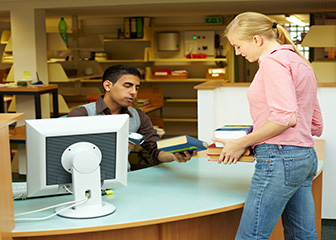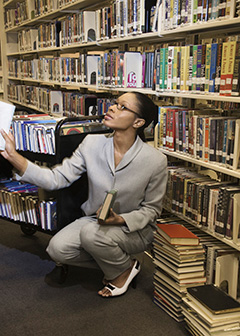Summary

| Quick Facts: Library Technicians and Assistants | |
|---|---|
|
$26,330 per year
$12.66 per hour |
|
| See How to Become One | |
| None | |
| See How to Become One | |
| 231,500 | |
| 10% (About as fast as average) | |
| 22,100 | |
What Library Technicians and Assistants Do
Library technicians and assistants help librarians acquire, prepare, and organize materials. They also do other tasks that are needed to run a library.
Work Environment
Library technicians and assistants usually work at desks or computer terminals inside libraries. They also work in the library stacks while cataloguing or shelving books.
How to Become a Library Technician or Assistant
Library technicians and assistants have varying levels of education. Some have only high school diplomas, while others have specialized postsecondary degrees. Library technicians are more likely to have to have formal education beyond high school.
Pay
The median hourly wage of library technicians and assistants was $12.66 in May 2010.
Job Outlook
Employment of library technicians and assistants is expected to grow by 10 percent from 2010 to 2020, about as fast as the average for all occupations.
Similar Occupations
Compare the job duties, education, job growth, and pay of library technicians and assistants with similar occupations.
O*NET
O*NET provides comprehensive information on key characteristics of workers and occupations.
Contacts for More Information
Learn more about library technicians and assistants by contacting these additional resources.







